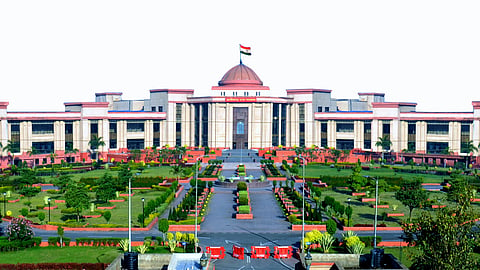

The Chhattisgarh High Court, today, Friday, December 6, dismissed a batch of petitions challenging the exam pattern for the Civil Judge (Entry Level) Main Examination 2023.
The petitioners argued that the exam pattern was not notified in the rules or advertisement, and the evaluation process was unfair. However, the court upheld the Exam Conducting Authority’s exclusive jurisdiction over the exam pattern and sequence of questions.
In its judgment, the high court clarified that candidates are entitled only to the syllabus of the examination, and there is no requirement for the exam pattern to be publicly notified, reported LiveLaw.in.
“The pattern of the Main examination and the questions to be asked are within the exclusive domain of the examination conducting body,” the court stated.
The petitioners, who had appeared for the examination, challenged the evaluation process, claiming that their answer sheets were not properly evaluated because they had failed to follow the specific order of questions outlined in the Question-Answer Booklet.
The petitioners contended that they answered questions based on their preparation, only to later realise they had not followed the correct sequence.
In response, the Chhattisgarh Public Service Commission (CGPSC) defended the process, arguing that the mandatory instructions regarding the sequence of answering were clearly provided in the Question-Answer Booklet. They pointed out that the instructions specified that answers must be written in designated spaces and in a serial order, which the petitioners had ignored. The CGPSC asserted that no changes were made to the rules during the exam.
The court emphasised that the instructions were clearly written in the booklet and should have been carefully read by candidates.
The court stated, “Any sensible person after going through the questions and blank pages can understand that he/she has to write the answer in the space immediately following each question.”
The bench, comprising Justice Rakesh Mohan Pandey, concluded that the exam followed a clear pattern: the Preliminary examination, followed by the Main examination and Interview, all of which were notified in the advertisement.
Furthermore, the court noted that 542 candidates successfully participated in the Main examination, adhering to the instructions, which suggested that the process was fair and transparent, added LiveLaw.in.
The court ruled that candidates who failed to follow the proper sequence in answering the questions could not be considered suitable for the Civil Judge position, as the goal of the selection process is to identify the most qualified individuals.
